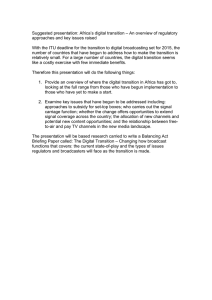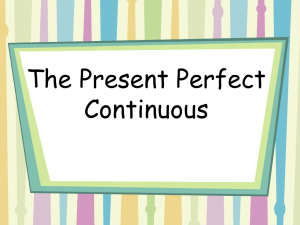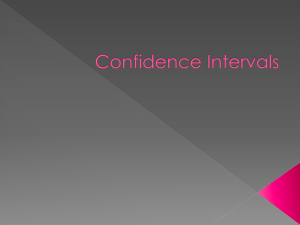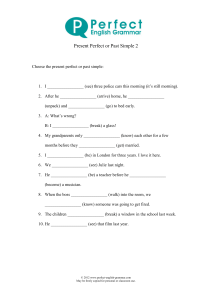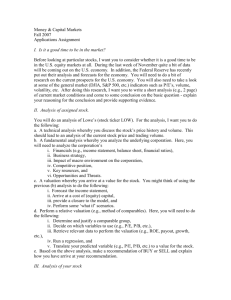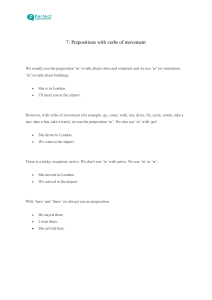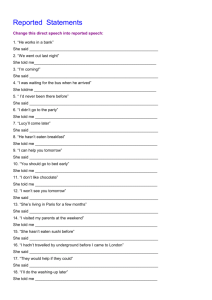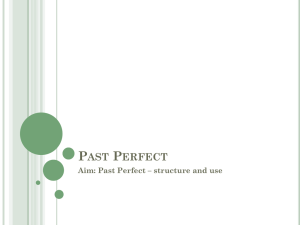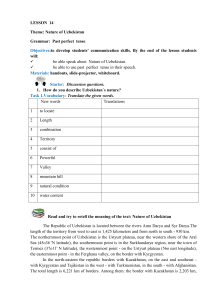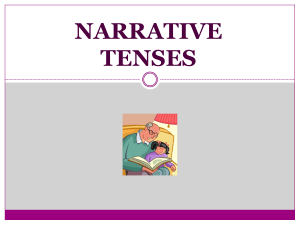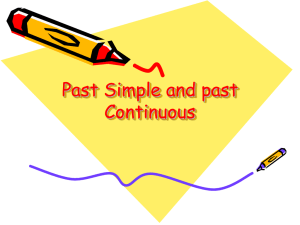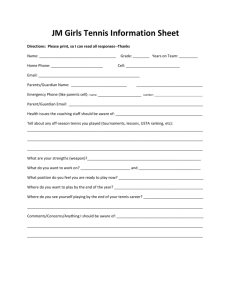English Verb Tense Chart: Positive, Negative, Question Forms
advertisement
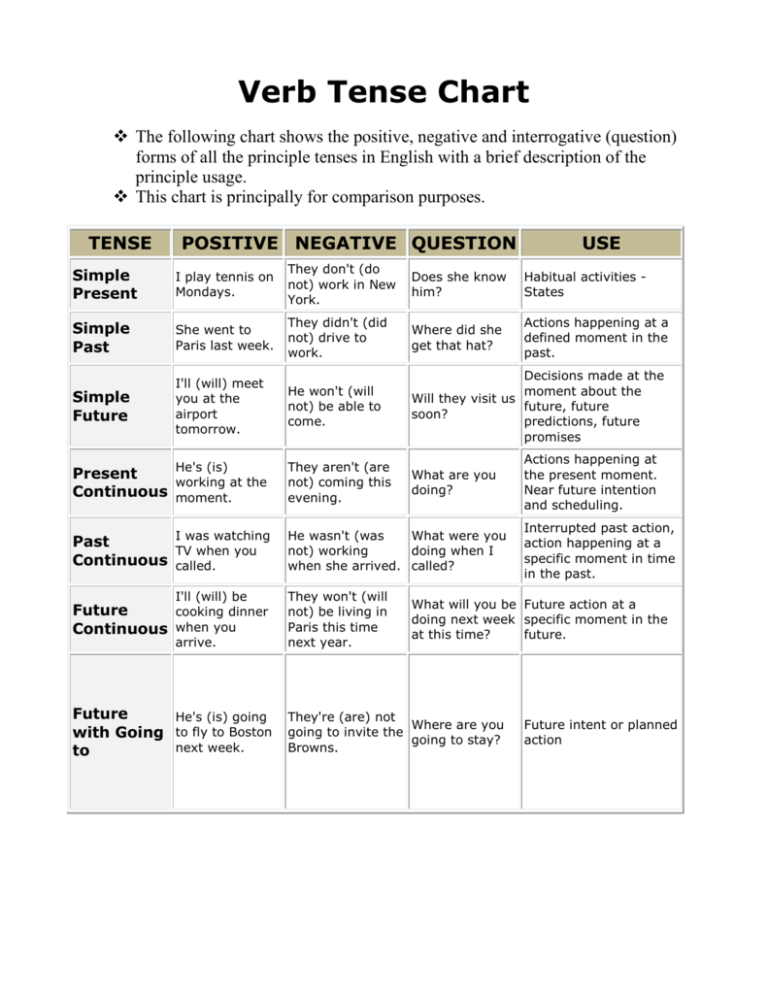
Verb Tense Chart The following chart shows the positive, negative and interrogative (question) forms of all the principle tenses in English with a brief description of the principle usage. This chart is principally for comparison purposes. TENSE POSITIVE NEGATIVE QUESTION USE Simple Present I play tennis on Mondays. They don't (do not) work in New York. Does she know him? Habitual activities States Simple Past She went to Paris last week. They didn't (did not) drive to work. Where did she get that hat? Actions happening at a defined moment in the past. Simple Future I'll (will) meet you at the airport tomorrow. He won't (will not) be able to come. Decisions made at the moment about the Will they visit us future, future soon? predictions, future promises He's (is) Present working at the Continuous moment. They aren't (are not) coming this evening. What are you doing? I was watching Past TV when you Continuous called. He wasn't (was What were you not) working doing when I when she arrived. called? Future cooking dinner Continuous when you I'll (will) be They won't (will not) be living in Paris this time next year. Future He's (is) going with Going to fly to Boston next week. to They're (are) not Where are you going to invite the going to stay? Browns. arrive. Actions happening at the present moment. Near future intention and scheduling. Interrupted past action, action happening at a specific moment in time in the past. What will you be Future action at a doing next week specific moment in the at this time? future. Future intent or planned action Present Perfect I've (have) seen Mick three times this week. She hasn't (has not) been to New York. How long have you worked at Smith's? 1)To express an action that was begun in the past and continues into the present. 2) To express an action that happened in the UNspecified past. 3) To express a recent action that has a present effect. Past Perfect I'd (had) already eaten before they came. She hadn't (had not) been to Rome before that trip. Had you ever seen To express an action that such a crazy happens before another lady before action in the past. that? Future Perfect We'll (will) have lived here for twenty years by 2005. She won't (will not) have finished her homework by the time we arrive. How long will you have lived in France by the end of next year? To express what will have happened or how long something will have happened up to a certain point in the future. Present Perfect Continuous She's (has) been waiting for over three hours. They haven't (have not) been studying for long. How long have you been working on that problem? To express the duration of a continuous activity begun in the past and continuing into the present. Past Perfect Continuous She'd (had) been waiting for three hours when he finally arrived. I hadn't (had not) been sleeping for long when I heard the doorbell ring. How long had you been playing tennis when she arrived? To express the duration of a continuous activity begun before another activity in the past. Future Perfect Continuous He'll (will) have been sleeping for a few hours by the time we arrive. She won't (will not) have been working for long by 5 o'clock. How long will you have been driving by 6 o'clock? To express the duration of an activity up to a point of time in the future. Adapted from: http://esl.about.com/library/grammar/blgr_verbforms.htm?once=true& LATTC Writing Center Rev. July 27, 2007 Title V Funded
